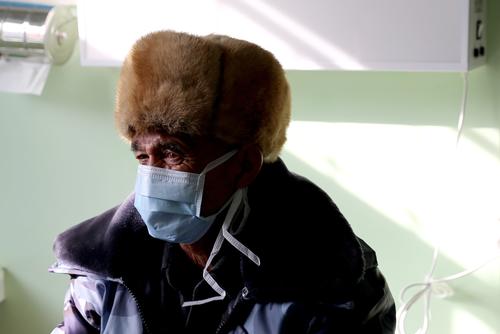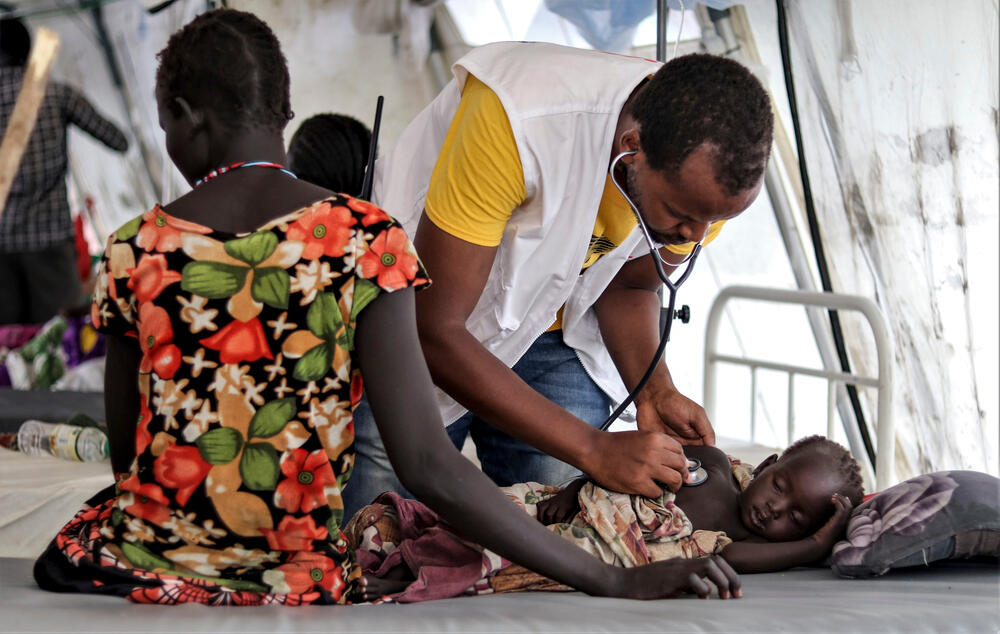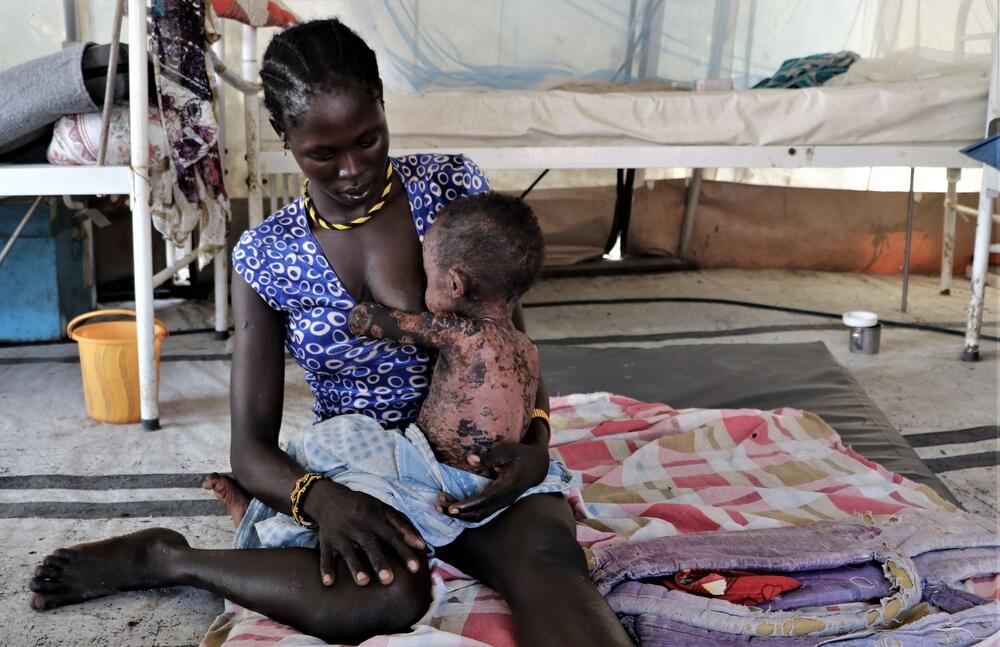South Sudan: Vaccinations needed to stop spread of measles in flooded Pibor
Two months into a measles outbreak in Pibor town in the Greater Pibor Administrative Area, the spread of the highly contagious and life-threatening illness is a severe growing crisis.
Médecins Sans Frontières/Doctors Without Borders (MSF) calls on all health organisations to urgently launch a reactive vaccination campaign to curb the outbreak.
On 18 August 2020, MSF treated the first patient for suspected measles in Pibor town, eastern South Sudan. By the end of October, teams had treated over 250 children.
“We believe measles is now widespread and getting out of control. It is especially concerning that the Greater Pibor Administrative Area is flooded and in emergency. We started with four, then six and then 18 isolation beds,” says MSF’s Dr Adelard Shyaka.
“At the moment we have 30 children with severe measles receiving treatment in our health facility.”
Highly contagious
When MSF began responding to the outbreak in August, patients were mostly coming from central Pibor town, but now the disease is spreading.
Many people are walking and paddling through stagnant and moving water, sometimes for up to seven days, to reach care at MSF’s makeshift healthcare clinic in Pibor.
“The severity of the outbreak is being magnified by other illnesses like severe malaria, pneumonia and severe malnutrition,” says Dr Shyaka.
“Two children have already died and we are deeply concerned that without a prompt reactive vaccination campaign, more children will continue to die.”

Our work saves lives
“This is the moment to vaccinate as many children as possible through small mobile teams visiting these small islands”
Measles is a highly contagious disease that is transmitted through the air. There is no specific treatment once someone contracts it, but a well-conducted vaccination campaign is extremely effective to prevent new cases.
In areas like Pibor with large-scale movement of people and low immunisation coverage due to insecurity and access challenges, vaccination can reduce infant mortality by 50 percent.
One child can infect 12-18 others
There are many children in Pibor who, having fled fighting or the floods with their families, are living in close contact to each other.
Children with measles are generally expected to infect around 12 to 18 other people during an eight-day period in which they are infectious (four days before and after the onset of rash).
“We can expect the infection rate of measles in Pibor today to be alarmingly higher than these estimates,” says MSF epidemiologist Laura Wright.
“A total 71 percent of patients are under one year of age. This is likely due to a disruption of routine vaccinations, resulting from the flooding that also happened this time last year and the ongoing conflict.”
MSF has been calling on all health organisations in South Sudan to urgently implement a wide-coverage reactive vaccination campaign since 31 August, after six measles cases were confirmed by laboratory. MSF accepts that this is a challenge, but by no means an impossibility.
“Measles campaigns in this region are notoriously difficult to implement and are not always that successful in reaching people living in remote and widespread locations,” says Josh Rosenstein, MSF project coordinator in Pibor.
“However, today with the floods, many communities are clustered on small islands of dry land. This is the moment to vaccinate as many children as possible through small mobile teams visiting these small islands,” he continues.
158,200
PEOPLE TREATED FOR MEASLES BY MSF IN 2022
4,124,700
VACCINATIONS AGAINST MEASLES BY MSF IN RESPONSE TO AN OUTBREAK IN 2022
95%
OF MEASLES DEATHS OCCUR IN LOW-INCOME COUNTRIES
“If we do not act now, despite all the challenges we face in conducting a reactive measles campaign, soon the water levels will start to decrease and people will start to return home and to their normal movement. This is the best chance that we have at controlling the disease outbreak.”
Third measles outbreak in 12 months
This is the third measles outbreak in Pibor in the last 12 months and MSF is struggling to control it while simultaneously responding to multiple health emergencies in the area.
We are not able to do more. In the last 11 weeks, MSF has treated over 15,624 patients, including 6,290 children under the age of five.
More than half of these patients have been treated for malaria: a number far above normal for this time of year. MSF has also treated 1,700 children under five for respiratory tract infections and 699 for watery diarrhoea, and is responding to rapidly increasing numbers of patients with malnutrition.
Teams are delivering healthcare via six mobile clinics operating in villages on the periphery of Pibor, and via a health facility located in the town. MSF is supporting water and sanitation activities, distributing about 60,000 litres of water daily.
MSF in South Sudan
MSF has been working in South Sudan since 1983. The medical humanitarian organisation currently runs projects in six states in Agok, Bentiu, Aweil, Fangak, Lankien, Leer, Maban, Mundri, Malakal, Pieri, Pibor, Yei and Ulang and additional COVID-19 emergency operations in Juba.
MSF’s emergency responses include assistance for internally displaced persons in the UN Protection of Civilians sites, and healthcare for people affected by malnutrition and peaks of disease such as measles, malaria, acute watery diarrhoea and kala azar, in addition to providing basic and specialist healthcare services.

